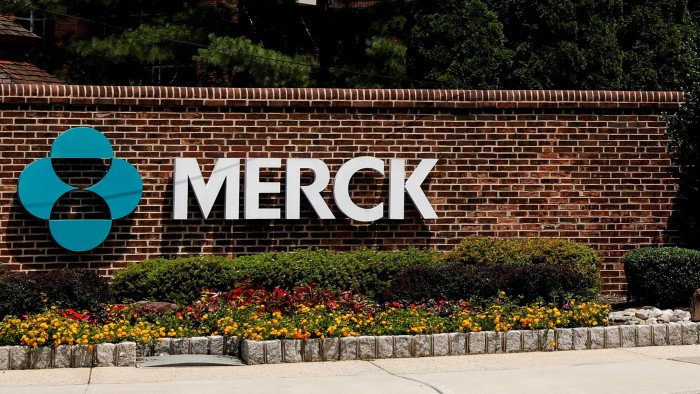Unlock the Editor’s Digest for free
Roula Khalaf, Editor of the FT, selects her favourite stories in this weekly newsletter.
Merck has held talks over a more than $3bn acquisition of Swiss biotechnology group MoonLake Immunotherapeutics, as the US pharmaceutical company seeks to replenish its drug pipeline.
The New Jersey-based drugmaker submitted a nonbinding offer for MoonLake earlier this year, valuing the business in excess of $3bn, a premium to its $2.6bn market value, according to three people familiar with the matter.
The initial approach was rejected but talks could be revived, the people said. Merck’s approach for US-listed MoonLake ahead of late-stage clinical data for its flagship drug — a treatment for hidradenitis suppurativa, a chronic form of acne — puts the biotech company on a strong footing to get sold, the people said. However, they added that there was no guarantee a deal would happen and there was a possibility that other buyers would emerge.
Founded in 2021 by a former McKinsey partner Jorge Santos da Silva, MoonLake is testing its lead drug sonelokimab in phase-three trials as a treatment for hidradenitis suppurativa in adolescents and adults as well as a chronic inflammatory disease known as psoriatic arthritis. Morgan Stanley and Goldman Sachs are advising MoonLake on the sale process.
The negotiations are the first hint that Merck is returning to the negotiating table a year after buying biotech EyeBio in its last multibillion-dollar biotech deal. Its shares have fallen 39 per cent over the past year, compared with an 11 per cent decline in the S&P 500 pharmaceutical index.
Merck, MoonLake, Goldman Sachs and Morgan Stanley declined to comment.
Shareholders have been agitating for Merck to do deals to reverse souring investor sentiment. Pressure has been piled on the pharma group over a projected dip in revenues from $30bn a year cancer drug Keytruda coming off-patent as early as 2028, sharp declines in revenues from its Gardasil vaccine in China, and slower than expected growth in its newly launched high blood pressure drug Winrevair. Merck has also struck several small deals with China-based biotechs in the past year.
Merck’s chief executive Rob Davis told investors in April after President Donald Trump’s tariff policy was first announced that market turmoil was “not stopping us from being aggressive and wanting to move forward and do deals”.
“As it relates to the sellers, I would say that we continue to see, at least in the conversations we’ve had, a little bit of a disconnect between what is the reality of the market that the sellers face and what is the expectation for value that they have,” added Davis. “I don’t think they are fully yet aligned to the realities of where we are today.”
Shares in MoonLake have risen almost 50 per cent over the past two years to more than $40 a share, as investors have bet that it will be an acquisition target.
US healthcare dealmaking has slowed in recent months as the sector grapples with economic uncertainty, turmoil at regulatory agencies including the Food and Drug Administration under the supervision of health secretary Robert F Kennedy Jr, a vocal vaccine sceptic, and competition from Chinese biotechs producing cheaper copycat versions of drugs.
Despite the slowdown in dealmaking, French drugmaker Sanofi on Monday agreed to buy immunology-focused biotech Blueprint Medicines in a deal worth up to $9.5bn and Bristol Myers Squibb struck an up to $11bn partnership deal with German drugmaker BioNTech over a cancer treatment in development that aims to displace Merck’s Keytruda.
Read the full article here




